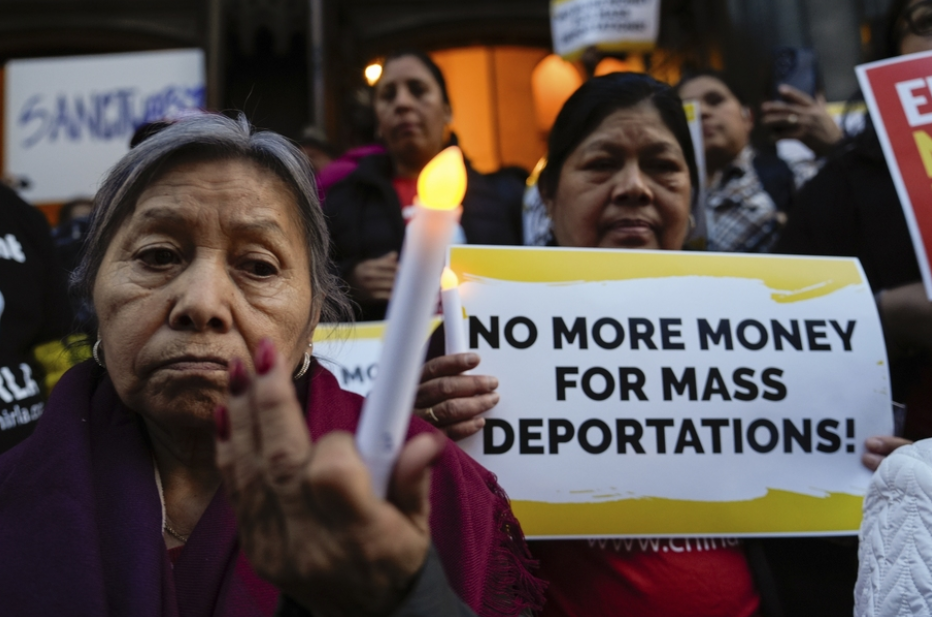In yet another disturbing escalation of his hardline immigration agenda, former President Donald Trump is reportedly considering a new deportation scheme that would send migrants to Libya—a country currently deemed unsafe and unstable by the U.S. government itself. According to two U.S. officials who spoke with Reuters, the Trump team may begin using U.S. military aircraft to forcibly deport individuals to Libya, with flights possibly commencing as early as this week.
While the exact timeline remains uncertain, the potential move would represent a dramatic and dangerous shift in American deportation policy—one that flies in the face of human rights standards and diplomatic norms. The White House has yet to offer public confirmation, and a spokesperson for the State Department declined to disclose any specifics, stating only, “We do not discuss the details of our diplomatic communications with other governments.”
This latest initiative is just one part of a broader pattern in which Trump seeks to offload migrants to volatile regions with poor human rights records. Just days earlier, his administration floated a similar plan to deport individuals to Rwanda—a nation still haunted by the legacy of a horrific genocide in the 1990s.
Trump’s efforts to outsource deportation have already pressured several Latin American nations—including Costa Rica, El Salvador, and Panama—into accepting non-citizen deportees. But now, he appears poised to expand that strategy to the African continent. Libya, however, presents a uniquely harrowing scenario. Since the 2011 overthrow of Muammar Gaddafi, the country has been in a near-constant state of civil war, terrorism, and political collapse.
The U.S. Department of State currently warns American citizens to avoid travel to Libya, citing dangers including armed conflict, kidnapping, crime, terrorism, and landmines. The agency’s latest human rights report paints an even bleaker picture: migrants detained in Libya face “harsh and life-threatening conditions,” often without any legal recourse, including for women and children.
Despite these warnings, Trump is apparently undeterred. His record is already marred by multiple controversial deportation decisions—including the expulsion of Kilmar Abrego Garcia to a notorious gang-ridden prison in El Salvador. Now, reports indicate that Trump is even considering the possibility of reopening Alcatraz, the defunct island prison, to hold immigrants he describes as “America’s most ruthless and violent offenders.”
The cruelty of Trump’s deportation agenda doesn’t stop there. Recent reports reveal that his administration is ramping up pressure on undocumented individuals to either accept forced deportation to violent regions or voluntarily leave the country in exchange for $1,000 in so-called “self-deportation” incentives.
As of this week, the Department of Homeland Security reports that over 152,000 people have been deported under Trump’s watch. But the former president appears eager to go even further. His team is ramping up military deployments to the Southern border, seeking to detain and deport millions more, and exploring legally questionable tactics to fast-track removals without judicial oversight.
Public opinion, however, is increasingly at odds with this punitive approach. A recent poll from Data for Progress found that 71% of likely voters oppose detaining immigrants with legal status and no criminal history in foreign countries. Additionally, 72% of Americans believe that the federal government must be required to provide evidence before deporting someone under the pretense of national security.
These numbers make one thing clear: the American people reject cruelty as a policy. They want immigration policies rooted in law, compassion, and accountability—not political theater or authoritarian spectacle.
What we are witnessing is not a legitimate immigration strategy—it’s state-sponsored vengeance dressed up as policy. Trump’s fixation on deportation is not driven by national security, but by a desire to score political points by vilifying immigrants and exploiting human suffering. His actions reflect not leadership, but a fundamental disregard for human dignity.
In Trump’s America, it’s not about whether a deportation is safe or justified. It’s about whether it can be used as a tool of fear and division.



